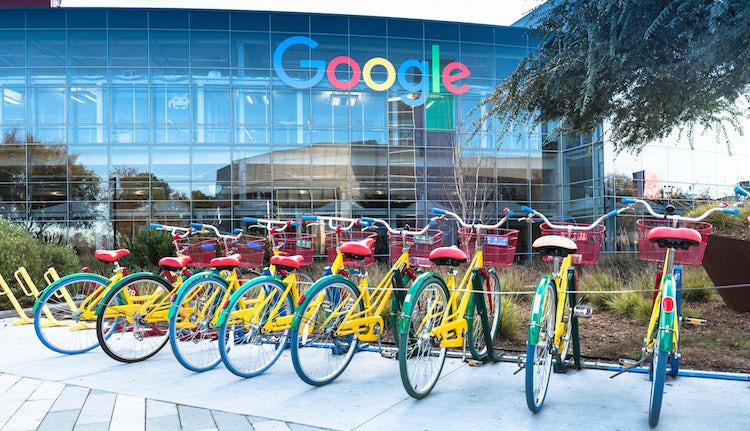Hbase & Hadoop Tutorial Step by Step for Beginners

Prerequisites: Working with HBase requires knowledge of Java
Record and run settings a team which includes 2 Stanford-educated, ex-Googlers and 2 ex-Flipkart Lead Analysts. This team has decades of practical experience in working with large-scale data processing jobs.
Relational Databases are so stuffy and old! Welcome to HBase – a database solution for a new age.
HBase: Do you feel like your relational database is not giving you the flexibility you need anymore? Column oriented storage, no fixed schema and low latency make HBase a great choice for the dynamically changing needs of your applications.
What’s Covered:
- 25 solved examples covering all aspects of working with data in HBase
- CRUD operations in the shell and with the Java API, Filters, Counters, MapReduce
- Implement your own notification service for a social network using HBase
- HBase and it’s role in the Hadoop ecosystem, HBase architecture and what makes HBase different from RDBMS and other Hadoop technologies like Hive
- Using discussion forums
- Please use the discussion forums on this course to engage with other students and to help each other out. Unfortunately, much as we would like to, it is not possible for us at Loonycorn to respond to individual questions from students:-(
- We’re super small and self-funded with only 2 people developing technical video content. Our mission is to make high-quality courses available at super low prices
- The only way to keep our prices this low is to *NOT offer additional technical support over email or in-person.* The truth is, direct support is hugely expensive and just does not scale.
- We understand that this is not ideal and that a lot of students might benefit from this additional support. Hiring resources for additional support would make our offering much more expensive, thus defeating our original purpose
Click here continue to improve your Knowledge
Apache Hadoop Mapreduce Architecture Online Course

Taught by a 4 person team including 2 Stanford-educated, ex-Googlers and 2 ex-Flipkart Lead Analysts. This team has decades of practical experience in working with Java and with billions of rows of data.
This course is a zoom-in, zoom-out, hands-on workout involving Hadoop, MapReduce and the art of thinking parallel.
Let’s parse that.
Zoom-in, Zoom-Out: This course is both broad and deep. It covers the individual components of Hadoop in great detail, and also gives you a higher level picture of how they interact with each other.
Hands-on workout involving Hadoop, MapReduce : This course will get you hands-on with Hadoop very early on. You’ll learn how to set up your own cluster using both VMs and the Cloud. All the major features of MapReduce are covered – including advanced topics like Total Sort and Secondary Sort.
The art of thinking parallel: MapReduce completely changed the way people thought about processing Big Data. Breaking down any problem into parallelizable units is an art. The examples in this course will train you to “think parallel”.
What’s Covered: Lot’s of cool stuff ..

Using MapReduce to:
Recommend friends in a Social Networking site: Generate Top 10 friend recommendations using a Collaborative filtering algorithm.
Build an Inverted Index for Search Engines: Use MapReduce to parallelize the humongous task of building an inverted index for a search engine.
Generate Bigrams from text: Generate bigrams and compute their frequency distribution in a corpus of text.
Build your Hadoop cluster:
Install Hadoop in Standalone, Pseudo-Distributed and Fully Distributed modes
Set up a hadoop cluster using Linux VMs.
Set up a cloud Hadoop cluster on AWS with Cloudera Manager.
Understand HDFS, MapReduce and YARN and their interaction
Customize your MapReduce Jobs:
Chain multiple MR jobs together
Write your own Customized Partitioner
Total Sort : Globally sort a large amount of data by sampling input files
Secondary sorting
Unit tests with MR Unit
Integrate with Python using the Hadoop Streaming API
Click here continue to improve your Knowledge
Complete Google Cloud Data Engineer Certification

This course is a really comprehensive guide to the Google Cloud Platform – it has 25 hours of content and 60 demos.
The Google Cloud Platform is not currently the most popular cloud offering out there – that’s AWS of course – but it is possibly the best cloud offering for high-end machine learning applications. That’s because TensorFlow, the super-popular deep learning technology is also from Google.
What’s Included:
- Compute and Storage – AppEngine, Container Enginer (aka Kubernetes) and Compute Engine
- Big Data and Managed Hadoop – Dataproc, Dataflow, BigTable, BigQuery, Pub/Sub
- TensorFlow on the Cloud – what neural networks and deep learning really are, how neurons work and how neural networks are trained.
- DevOps stuff – StackDriver logging, monitoring, cloud deployment manager
- Security – Identity and Access Management, Identity-Aware proxying, OAuth, API Keys, service accounts
- Networking – Virtual Private Clouds, shared VPCs, Load balancing at the network, transport and HTTP layer; VPN, Cloud Interconnect and CDN Interconnect
- Hadoop Foundations: A quick look at the open-source cousins (Hadoop, Spark, Pig, Hive and HBase)
Who is the target audience?

- Yep! Anyone looking to use the Google Cloud Platform in their organizations
- Yep! Any one who is interesting in architecting compute, networking, loading balancing and other solutions using the GCP
- Yep! Any one who wants to deploy serverless analytics and big data solutions on the Google Cloud
- Yep! Anyone looking to build TensorFlow models and deploy them on the cloud
- Basic understanding of technology – superficial exposure to Hadoop is enough.
- Deploy Managed Hadoop apps on the Google Cloud
- Build deep learning models on the cloud using TensorFlow
- Make informed decisions about Containers, VMs and AppEngine
- Use big data technologies such as BigTable, Dataflow, Apache Beam and Pub/Sub